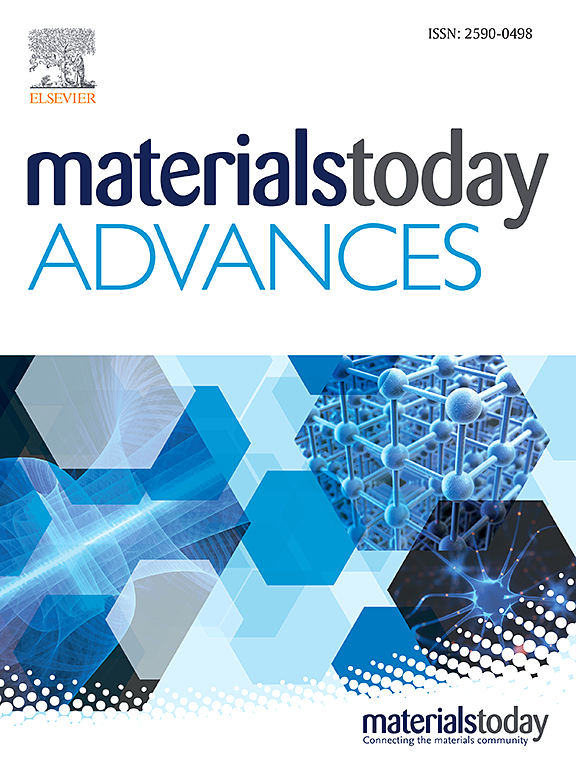Study of engineering developing decagonal-like rational approximant structure of Al–Ni–Cu–Fe–Mn–Cr senary system in aluminum alloy through additive manufacturing
IF 8
2区 材料科学
Q1 MATERIALS SCIENCE, MULTIDISCIPLINARY
引用次数: 0
Abstract
Quasi-periodic materials hold unique properties, but mass-producing bulk materials with such structures remains challenging. The rational approximant phase belongs to the Bravais crystal system but exhibits irrational cut features and diffraction symmetries, which are similar to quasicrystals. This study uses additive manufacturing (AM) and prolonged annealing to create an aluminum-based alloy featuring a quasicrystal-like rational approximant phase, Al(Cu, Ni)(Cr, Mn, Fe), overcoming the production limitations of reproducible quasi-periodic materials. This phase transformation occurs at the Al–AlFeNi interface, resulting in a monoclinic periodic structure with long-range translational symmetry. The structure comprises sublattices of stars and compressed hexagons, forming tile mode coverings with pseudo-five-fold decagonal shield-like tiles (SLTs) through transition-element atoms. Furthermore, HAADF imaging reveals clear dark monoclinic rhombic patterns with long-range ordered translational symmetry, free from atomic defects. The rational approximant phase has been verified crystallography through X-ray diffraction, confirming its translational symmetry. Additionally, the Al(Zr, Sc) phase facilitates the phase transformation process through lattice interactions. These findings introduce a novel perspective on the phase transformation in decagonal-like rational approximants and broaden the realm for future engineering applications.通过快速成型技术开发铝合金中 Al-Ni-Cu-Fe-Mn-Cr 全系十边形有理近似结构的工程研究
准周期材料具有独特的性质,但要大规模生产具有这种结构的块状材料仍具有挑战性。有理近似相属于布拉维晶系,但表现出非理性切割特征和衍射对称性,与准晶体类似。本研究利用增材制造(AM)和长时间退火制造出一种具有类准晶体理性近似相 Al(Cu,Ni)(Cr,Mn,Fe)的铝基合金,克服了可复制准周期材料的生产限制。这种相变发生在铝-铝铁镍界面上,形成了具有长程平移对称性的单斜周期结构。该结构由星形和压缩六边形的子晶格组成,通过过渡元素原子形成具有伪五折十边形盾牌状瓦片(SLT)的瓦片模式覆盖。此外,HAADF 成像还显示出清晰的暗单斜菱形图案,具有长程有序平移对称性,不存在原子缺陷。通过 X 射线衍射对合理近似相进行了晶体学验证,确认了其平移对称性。此外,Al(Zr,Sc)相通过晶格相互作用促进了相变过程。这些发现为十边形有理近似物的相变引入了一个新的视角,并拓宽了未来工程应用的领域。
本文章由计算机程序翻译,如有差异,请以英文原文为准。
求助全文
约1分钟内获得全文
求助全文
来源期刊

Materials Today Advances
MATERIALS SCIENCE, MULTIDISCIPLINARY-
CiteScore
14.30
自引率
2.00%
发文量
116
审稿时长
32 days
期刊介绍:
Materials Today Advances is a multi-disciplinary, open access journal that aims to connect different communities within materials science. It covers all aspects of materials science and related disciplines, including fundamental and applied research. The focus is on studies with broad impact that can cross traditional subject boundaries. The journal welcomes the submissions of articles at the forefront of materials science, advancing the field. It is part of the Materials Today family and offers authors rigorous peer review, rapid decisions, and high visibility.
 求助内容:
求助内容: 应助结果提醒方式:
应助结果提醒方式:


